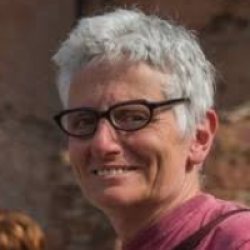Innovative Operating Models Working Group
The Innovative Operating Models Working Group advises on, supports and complements tasks and activities around concepts which are likely to play a vital role in defining and establishing innovative operating models for the common European data space for cultural heritage.
Background
The common European data space for cultural heritage, together with 13 sectoral and interoperable data spaces, is central in Europe’s ambition for a thriving data-driven society. With the Europeana Initiative at its heart, the data space will be a sovereign data ecosystem: an open and resilient commons for the users of European cultural data, where data owners - as opposed to platforms - have control of their data and of how, when and with whom it is shared.
This builds on some overall characteristics of what makes a data space, concepts such as openness, interoperability, sovereignty, democratisation, decentralisation, holistic approaches, continuous evolution, and collaborative governance. Especially in the context of the common European data space for cultural heritage, expanding on the 15+ years of experience within the Europeana Initiative, we know that these concepts are not only about data or technology, but also very much about community and frameworks that govern our collaboration.
While some of these concepts already are well ingrained in what we do, the exciting possibilities that the data space and the changing landscape around us also challenge us to better understand and articulate what we mean when we speak of sovereignty or decentralisation and to think about ways to operationalise our interpretation of these concepts in more depth. Considering these aspects for all areas in which the data space for cultural heritage will operate and will want to make an impact - ranging from data sharing to reuse and from a diverse and inclusive community to capacity building - will be one of the key drivers for this Working Group.
Whether to apply a more or a less centralised operating model is a key issue for most networked organisations, which is currently understood as being the type of organisation that could be the best fit for the Europeana Initiative and - in extension - a possible model for the common European data space for cultural heritage.
A centralised approach is understood as one where business decisions are made at the top and distributed down to the branches or hubs of an organisational network. Those branches and hubs thereby all operate in a similar way and the input of local managers on the manner of operations is limited. A centralised approach can often lead to an initiative being slow to respond to changes in their business environment or locally.
A decentralised approach, on the other hand, is understood as one where decision-making is enabled for managers and staff further down the chain, providing them with more responsibilities fit for their specific area and context. A decentralised approach can often lead to an initiative being able to respond quickly to changes in the operational environment.
Scope
The scope of this Working Group is to support any tasks and activities relating to the questions of centralisation and decentralisation conducted within the possibilities and boundaries of the deployment contract for the common European data space for cultural heritage, following up on the next steps recommended by the Decentralised Aggregation Task Force in their final report.










